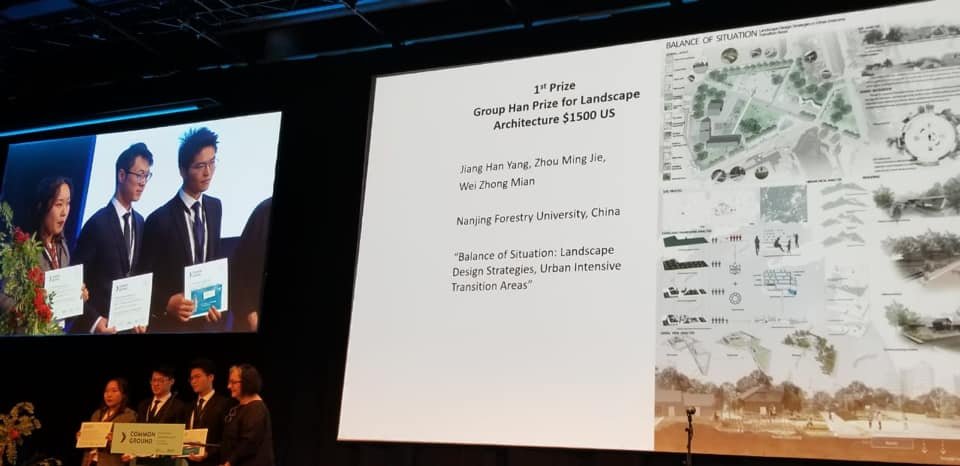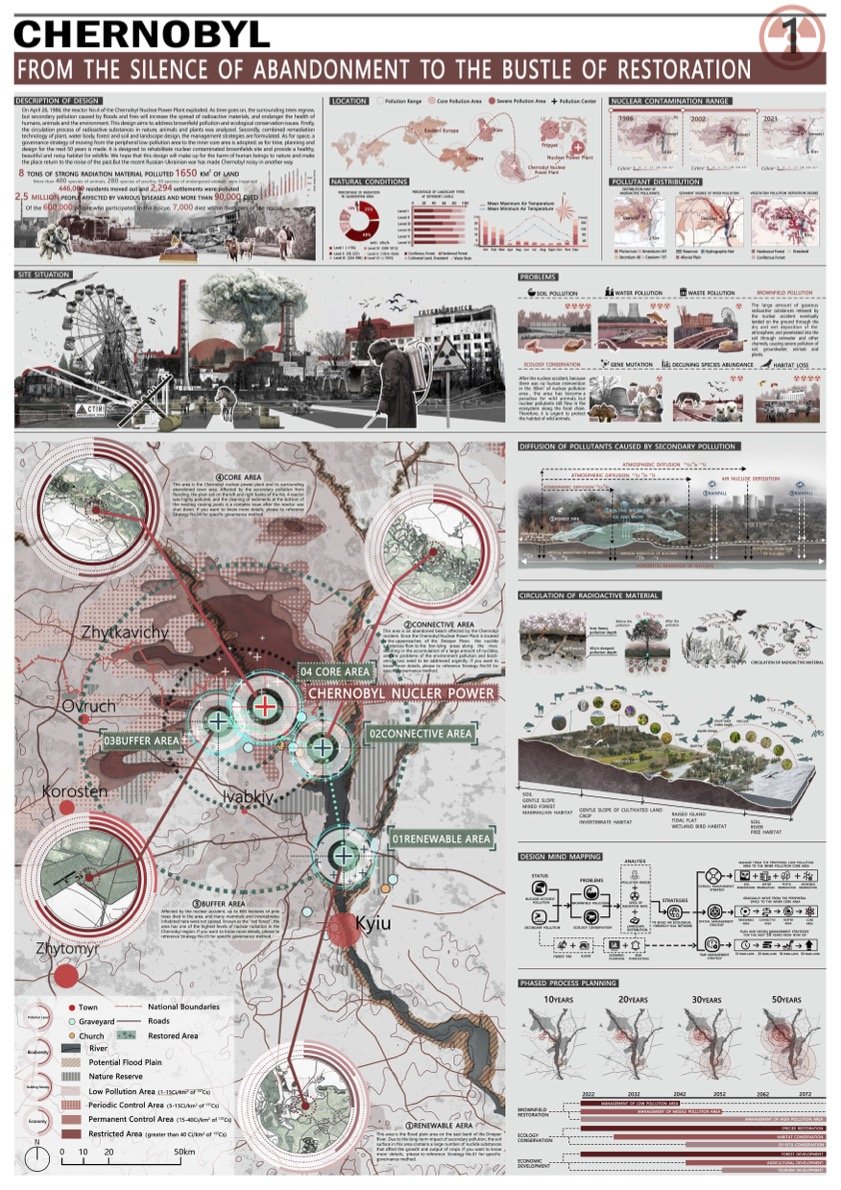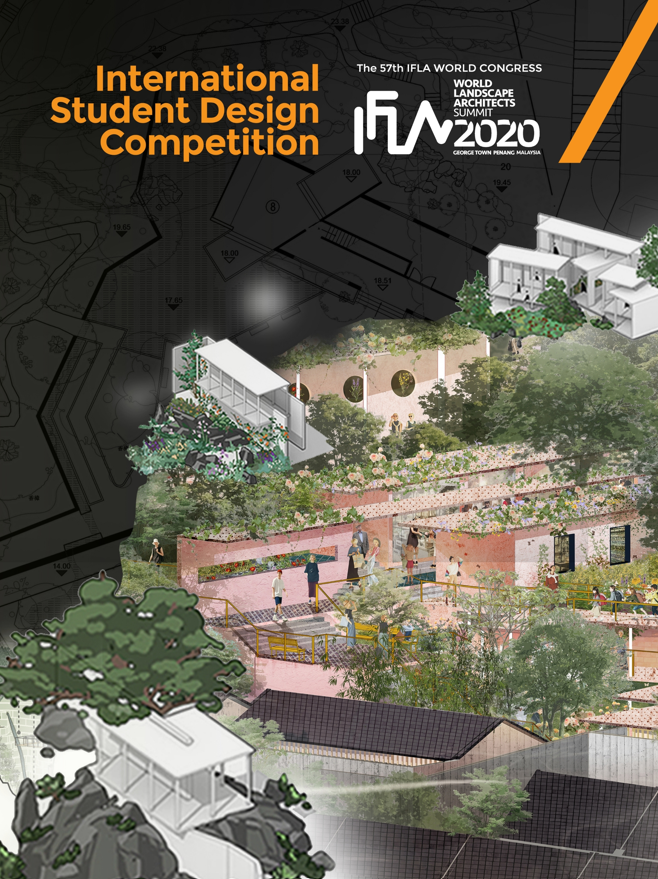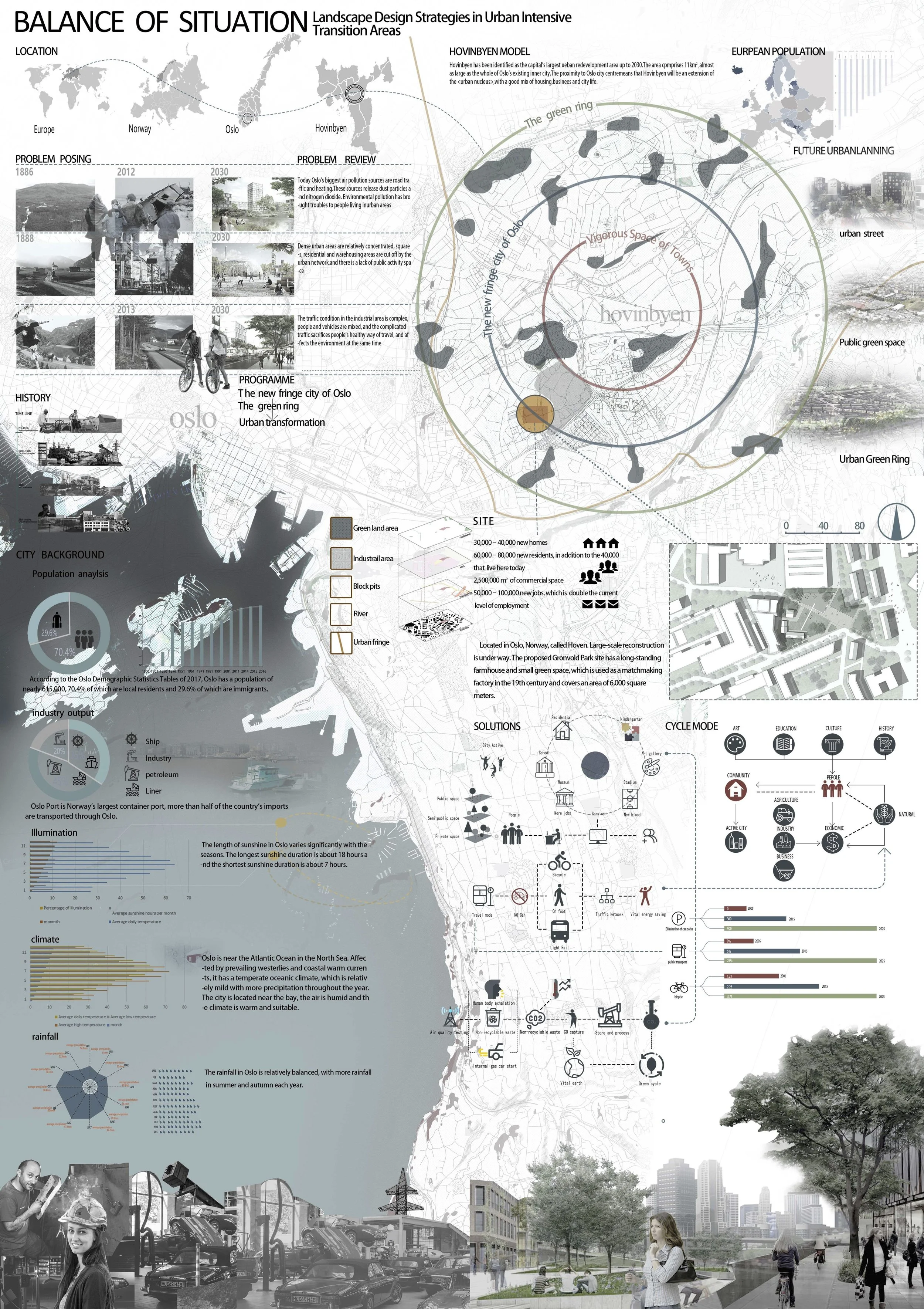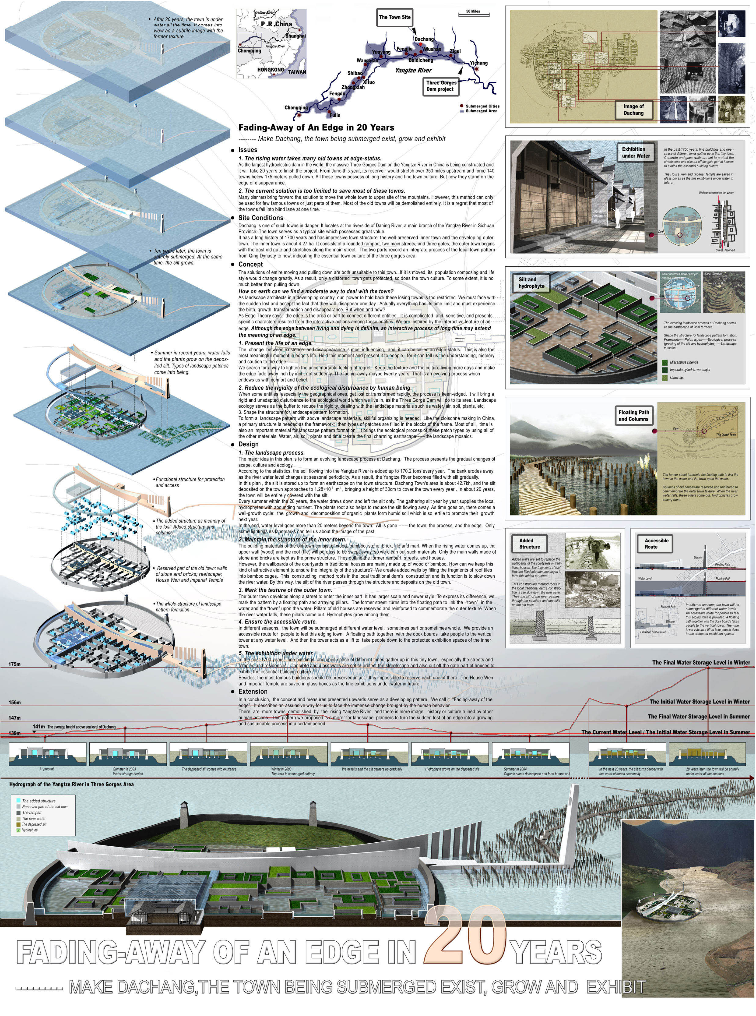Dr Beverly Sandalack announcing winner of the 2019 Competition at the World Congress in Oslo. Image: IFLA Americas
The IFLA Student Landscape Architecture Design Competition has been an important part of the IFLA World Congress for some time.
One of the roles of the competition is to promote and encourage the evolution of the profession of landscape architecture through education. Students have the opportunity to have their work reviewed alongside that of their peers from around the world. The discipline required to prepare a competition entry is a very useful exercise for students, and helps them prepare for some of the rigours of professional life.
Students have been asked to respond to a specific topic, which has usually related to the overall Congress theme. This allows the students to address local issues, and to fit into the general expectations of the studio class or thesis requirements of their university. It has also given much insight into what students are thinking about. What are they concerned about? How do they see the role of landscape architecture? How do they see themselves?
In every competition, it has been clear that students pay attention to both the natural and the cultural landscape. The most successful projects have been those in which the students have clearly understood their context, and have employed both a rigourous analytical method, as well as strong design principles and execution. Ecological crises, the shocking destruction of heritage landscapes, social inequities, and the overall relationship between people and their environment are issues that have dominated the submissions. There is typically a range of projects from practical and site-specific, to conceptual and experimental, and the submissions represent the broad spectrum of the profession of landscape architecture, with urban and rural subjects, and a wide range of scales. The graphic communication of the projects, not surprisingly, has rapidly evolved over the years, and indicates that university programs continue to lead in this area. Interestingly, many of the project still demonstrate that students are continuing to develop their hand graphics as well.
Dr. Beverly A. Sandalack, Chair, IFLA Competitions Committee to 2019
Recognising the breadth of the profession, in 2020 IFLA adjusted the entry categories of the competition from one to three,. moving it from solely a design based focus to one which showcase dthe diversity of study and proficieny within Landscape Architectre. Nowadays students can enter in either Analysis and planning , Landscape Design or Applied Research.

